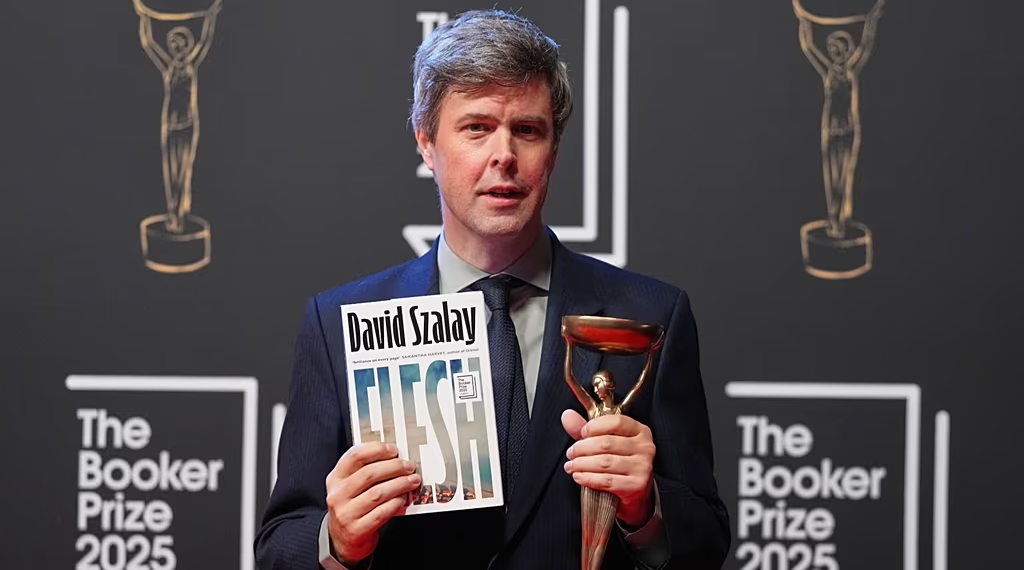British-Hungarian author David Szalay has won this year’s Booker Prize for his novel ‘Flesh’, which the judges described as “extraordinary” and “a very special book“.
Flesh tells the story of an alluring, enigmatic, and emotionally detached man who is swept through different phases of his life, from a Hungarian housing estate to the world of the ultra-rich in London.
“What we particularly liked about Flesh was its singularity. It’s just not like any other book,” said author Roddy Doyle, who chaired the judging panel. “It’s a dark book, but we all found it a joy to read.”
Actress Sarah Jessica Parker was among the other Booker judges, while ‘Flesh’ has been championed by Dua Lipa and Stormzy.
Szalay told the BBC he was feeling a “bit dazed” after winning the prize, and it was going to take a while to “sink in”.
“I did maybe too thorough a job of convincing myself that I wasn’t going to win in order to get through the evening without too much stress, and now I have to catch up a bit in my head,” he said.
“But it’s fantastic, of course.”
Stormzy recorded an extract of the book for a short film that was played at the Booker Prize ceremony in London on Monday.
Read Also:
- Trump threatens to sue BBC for $1bn
- Former US Vice-President Dick Cheney dies aged 84
- Peru cuts diplomatic ties with Mexico over ex-PM’s asylum claim
And Dua Lipa described it as a “tense and gripping read” when she picked it for her book club last month.
‘Flesh’ has had rave reviews across the board.
The Guardian called it a “brilliantly spare portrait of a man” and a “thrilling exploration of what it means to be alive”, while the Sunday Times praised how Szalay uses “just one character, Istvan, to tell these three stages of modern man”.
Critics and judges have also praised Szalay’s pared-down, minimalist dialogue and descriptions.
“We loved the spareness of the writing,” Doyle explained. “We loved how so much is revealed without us being overly aware of it being revealed.
“It’s just extraordinary how he uses white space. Grief is depicted by a few blank pages.”
Referring to the writing style, Doyle added: “I found it riveting, and I thought the dialogue was superb – and the absence of it was superb.”
Booker organisers described ‘Flesh’ as “a meditation on class, power, intimacy, migration and masculinity”, and called it “a compelling portrait of one man, and the formative experiences that can reverberate across a lifetime”.






